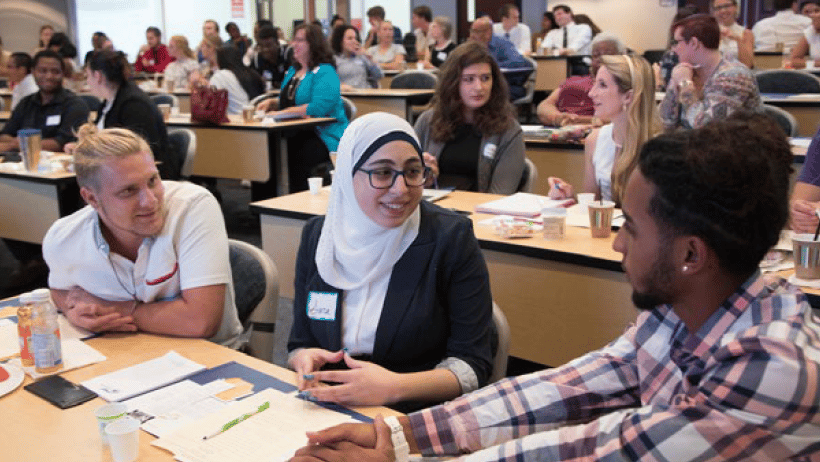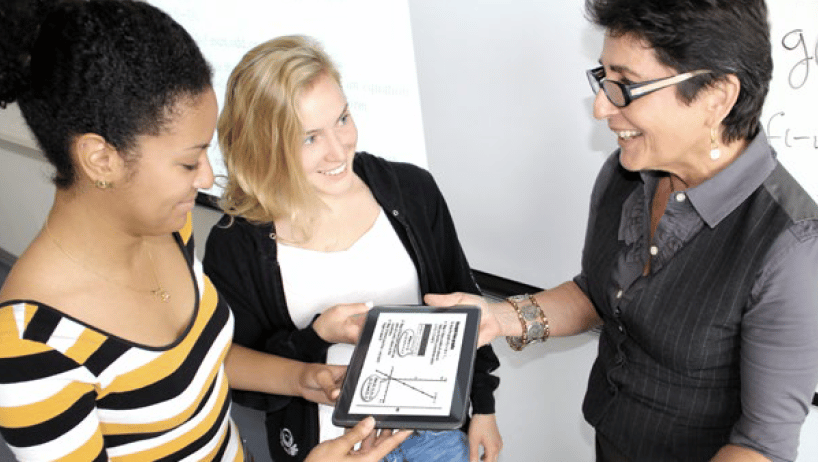Every Learner Everywhere (Every Learner) is a network of 12 higher education and digital learning groups, including Achieving the Dream. The network aims to address high failure rates in foundational courses by providing scalable, high-quality support to colleges and universities seeking to implement digital learning strategies on their campuses.
The mission of Every Learner is to help institutions use new technology to innovate teaching and learning, empower instructors, and improve student outcomes — especially for Black, Latinx, Indigenous, first-generation, and poverty-affected students. ATD’s work with Every Learner has included a range of technical assistance services to diagnose and design key implementation strategies around areas such as software selection, professional learning, evidence-based teaching strategies, learning analytics, and research.
Digital Learning Strategy Guides
In collaboration with Every Learner Everywhere, Achieving the Dream has created two sets of digital learning strategy guides.
The first set, Digital Learning Instructional Strategy Guides, offers faculty, professional learning professionals, and instructional designers guidance on the effective use of digital teaching and learning courseware. Composed of three guides, the set focuses on course structure and alignment, onboarding, and data-informed instruction with courseware.
Learn more about the Digital Learning Instructional Strategy Guides
The second set, Equity-Minded Digital Learning Strategy Guides, is designed to support and inform faculty on how to engage with pedagogies and professional learning that affirm, uplift, and liberate students through teaching practices that create more inclusive and equitable learning environments. The set comprises four guides that explore the following topics: culturally responsive teaching, social justice education, open pedagogy, and equity-centered professional learning.
Learn more about the Equity-Minded Digital Learning Strategy Guides
As part of ongoing efforts to improve teaching and learning, seven ATD Network institutions from Florida, Ohio, and Texas participated in an Every Learner Everywhere (ELE) Network pilot project to explore how institutions can use adaptive courseware to better serve students.
Achieving the Dream and ELE have released a report that summarizes key findings from this project, drawing from 12 case studies published over the last year.
Read the report
By the numbers
This report represents the work of hundreds of faculty, staff, and administrators in dozens of courses who together served thousands of students.
7
states
12
institutions
151
faculty
7.5K
students
What Is Adaptive Courseware?
The initial focus of Every Learner was to scale adaptive courseware, a digital teaching tool with instruction and assessments scoped and sequenced to support an entire course. It provides personalized, nonlinear instruction by analyzing students’ responses and giving instructors data about each student’s progress and learning so they can adapt instruction according to their needs.
- Allows students to move through the course material flexibly based on their demonstrated knowledge and skills
- Learners can adjust the content or degree of difficulty to maintain interactivity
- Provides immediate feedback so students can self-assess and continue to progress
- Allows for more interactive learning experiences than a textbook
- Automated assessments and analytics give instructors real-time data on students’ progress and areas of need
- Instructors can see how students are interacting with the course material
- Frees up instructors to spend more class time on interactive activities that build on student engagement with content outside of class
- Potential to improve student success rates in foundational courses
- Provides richer student data than is possible with textbooks
- Potential to reduce the cost of course materials
- Can help institutions meet their larger goals (e.g., improved affordability, access, retention, equity)





